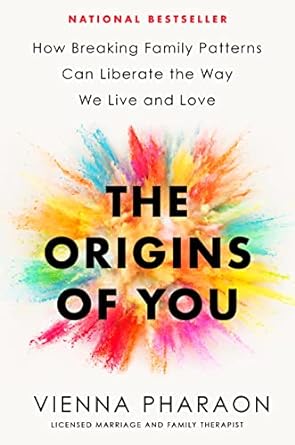Different psychological theories establish a hodgepodge of human needs. At the bottom of Maslow’s hierarchy sit physiological needs like food and shelter. Next comes safety. Then there’s self-determination theory, which focuses on three fundamental needs: competence, autonomy, and relatedness. Another concept, locus of control … well, you get the idea. In The Origins of You, Vienna Pharaon essentially pools needs from across the field of psychology into five buckets, renames each resulting conglomeration, and inverts them, creating five “wounds” that impact the way humans experience life. Her framework hasn’t been scientifically validated like the Big Five personality traits, and it’s nowhere near as well-known as the unvalidated-yet-illuminating five love languages. But if my personal experience is any indication, it could one day be considered just as pivotal for understanding ourselves and moving forward with intention, in a way that bolsters both partnering and parenting.
I didn’t want to like Insta-famous marriage and family therapist Pharaon (@MindfulMFT), but it soon became clear that she’s popular for a reason: she has a distinct talent for rendering the wisdom of academic psychotherapy, primarily family systems theory, accessible. “Your family of origin taught you about yourself, about how to engage with others, and what to expect out of relationships,” she writes, “whether you want to admit it or not, the ‘family stuff and childhood sh-t’ is at the root of, well, everything.” The good news is, examining your wounds can shift the way you see yourself, as well as the healthiness of how you communicate, fight, and maintain boundaries.
“What did you want most as a child and not get? … [Y]ou might have a worthiness wound. Or a belonging wound. Or a prioritization wound—or a trust wound or a safety wound.” In the chapter on worthiness, Pharaon addresses the underpinnings of perfectionism and eating disorders: a sense of contingent worth, “I’m worthy if …. I matter if ….” The prioritization discussion contains excellent guidelines for parents hoping to give children the attention they need without diminishing or depriving themselves in the process. The sections on trust, safety, and belonging also explain a ton about avoidance, clinginess, people pleasing, criticism, defensiveness, self-sabotage, stonewalling, contempt, aggression, and inconsistency in relationships—and how to deal with those maladaptive behaviors.
And how to avoid germinating them in the next generation: “[E]ven though you probably started reading this book for you as the adult child,” Pharaon writes, “you may have noticed yourself reading it as a partner, as a friend, or even as a parent yourself.” I know I did, and I recommend others do too.
